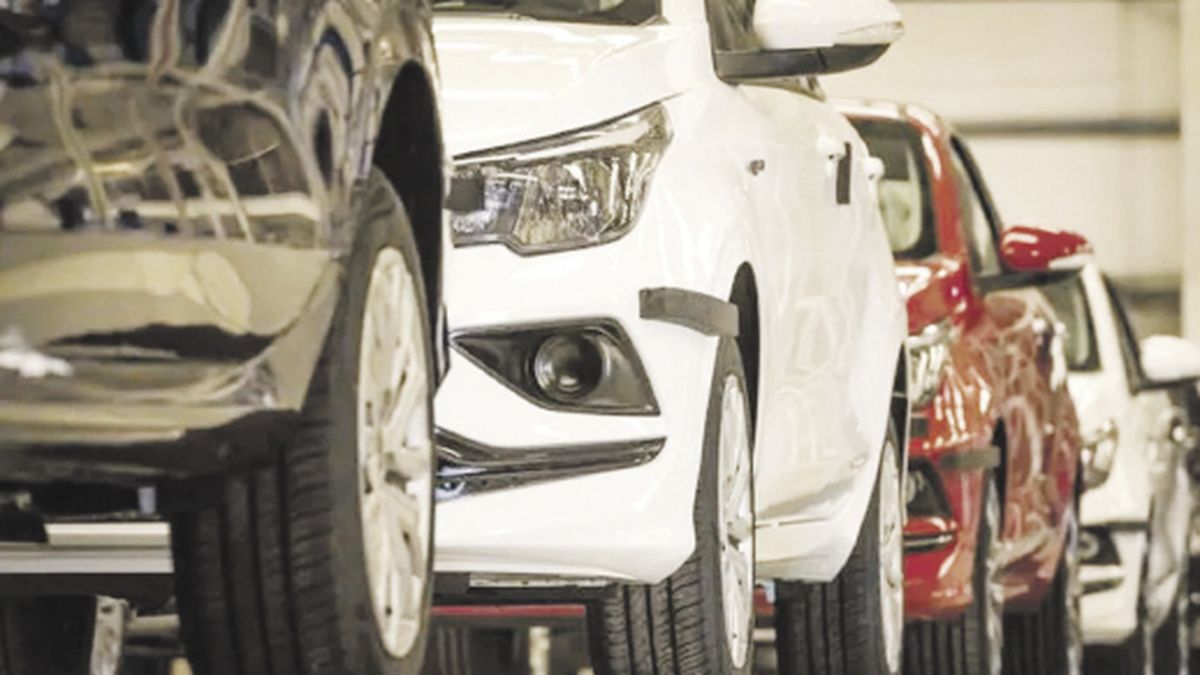There is a lot of expectation, as happens when some kind of tax reduction is mentioned. Consumers are wondering whether it is worth waiting to buy a vehicle, considering that this reduction could have a positive impact on the price of cars.
Consulted by Scope According to several businessmen in the sector – importers and manufacturers – the conclusion is that we must be cautious with these expectations. One detail must be taken into account: Businessmen will never anticipate that they will lower prices because that will slow down current demand. That being clarified, let’s see.
The first thing to consider is that, although the tax reduction is 10 percentage points, one cannot expect a linear transfer to the price to the public.
On the one hand, there are importers of brands that do not have factories located in the country. They represent no more than 3% of the market. In that case, there will be little change since, for some time now, they have been importing in financial dollars and not in official dollars, which is the one on which the PAÍS Tax is applied.
“In our case, we do not import through the official system, but through the Contado con Liqui system. So nothing changes for us. We will only be attentive to what the manufacturers do – who are the ones who import 97% of the cars – to see if we have to adjust some price, sacrificing profitability. Nothing more than that,” explained an importer of a non-registered brand.
Another issue to keep in mind is that the 10 points that the tax will be reduced by will impact the cost of importing the 0km vehicle, which is much less than the value at which it is sold.
“The tax is applied on the taxable base. Therefore, at the retail value, a 10-point reduction from PAÍS can represent 4% on the sales price,” said another importer.
On the side of the factories grouped in ADEFA clarifies that a general 10% drop in the price of new cars cannot be expected.
As for imported vehicles, the reason is the same as the one just explained for importers. It is applied to the value of arrival at the port. Before other taxes, such as VAT, Gross Income, “Luxury”, etc. and automotive and dealer margins.
As for domestic vehicles, it only affects imported parts. Domestic auto parts, labor costs, energy costs and services are all in pesos. All of this can represent 50% or more of the cost of manufacturing a car. Therefore, the tax reduction will not be passed on nominally.
Car prices have been increasing at the same rate as devaluation (2% per month) and inflation. On average, the monthly increase is between 2% and 4%.
If the impact of the reduction of the PAÍS Tax is 4% or 5% on the final price, what the buyer will feel is that, for example, in October – if it is reduced in September – the price of 0km cars will not increase. Not that they will go down. The same will happen from December onwards if the official promise of eliminating it completely is fulfilled.
Will there be no benefit from the tax cut?
The sector believes that, beyond the technical issue and the real impact of the tax cut, it will have a positive impact on the market.
“If someone can sell without lowering the price and improve profitability, the tax reduction will not be felt because it will not be passed on to the price. If a brand sees that it is not selling, it will lower the price because of the tax and perhaps do so by a higher percentage than its real impact. Today, the owner of the ball is the market, the buyer. There are no restrictions, no permits are needed to import,” explained an experienced automotive businessman.
This is the key point. It will depend on the strategy of each brand and dealership whether they aim to gain market share or improve profitability.
If one car manufacturer comes out with aggressive prices, it will force the others to adjust their prices. It will depend on that competition. And, in that case, it is possible that in a market with greater facilities for importing, more competition will end up benefiting the consumer somewhat.
Demand is stronger today than a few months ago, because prices have been adjusted through bonuses. The list price may not go down, but the bonuses may be increased. This is what dealerships estimate.
The conclusion could be that not all cars will go down in price by 10%, but the market will not be indifferent to the tax reduction either.
Source: Ambito
I’m a recent graduate of the University of Missouri with a degree in journalism. I started working as a news reporter for 24 Hours World about two years ago, and I’ve been writing articles ever since. My main focus is automotive news, but I’ve also written about politics, lifestyle, and entertainment.




